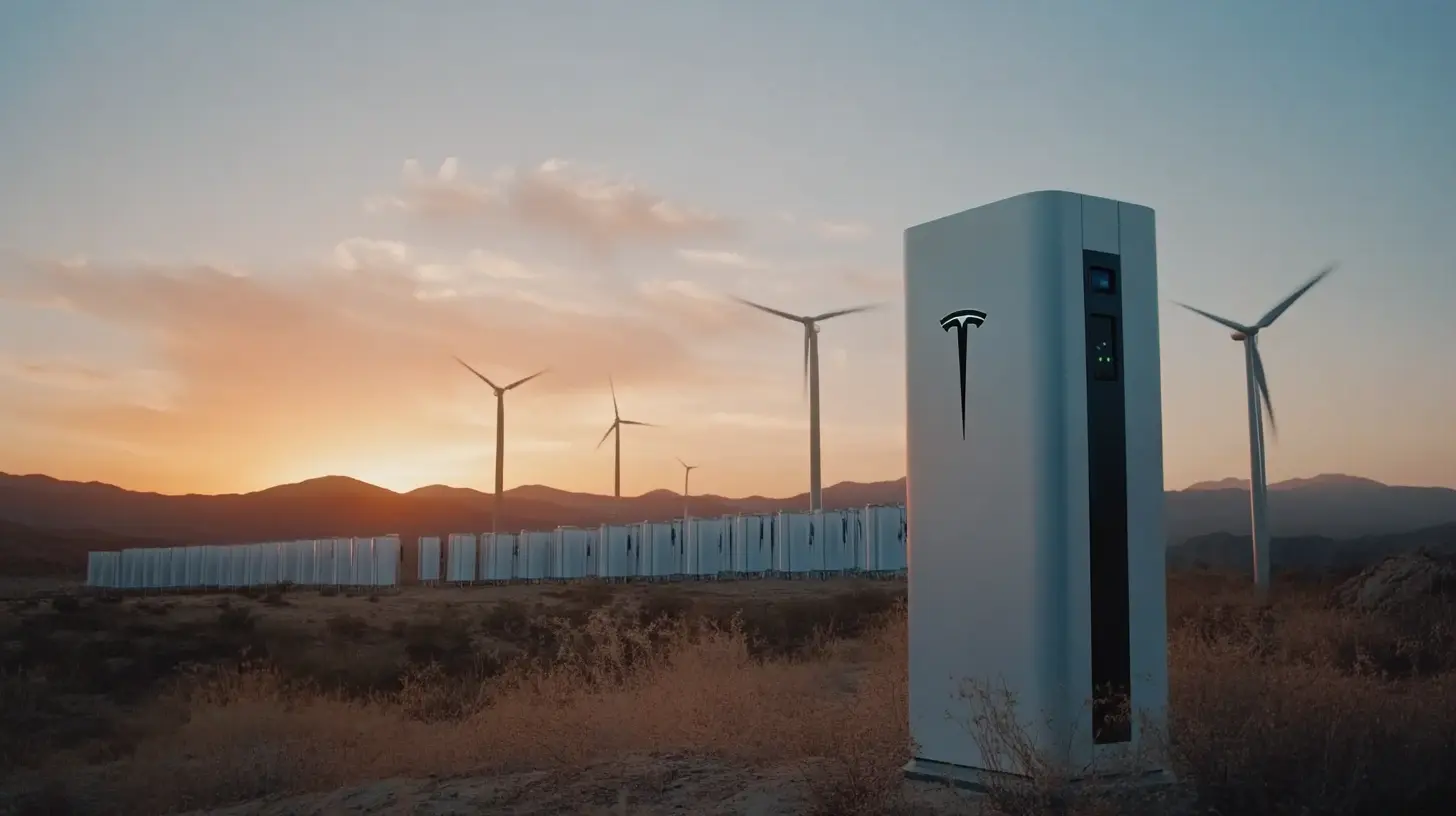Implementing energy-efficient options is now more exciting as electric vehicle (EV) adoption has gathered momentum in recent years. A report by the International Energy Agency states that the total number of electric cars sold globally reached over 10 million units in the past year, with projections of reaching 145 million by 2030. So far, there's a clear mark in demand for efficient charging solutions. With the coming need for affordable and sustainable charging options, the Portable Charger EV has become critical because it offers a user-friendly solution for EV users who would want to save on carbon emissions but not have to compromise on convenience.
It is Foshan Putaineng Charging Equipment Co., Ltd. at the vanguard of this technology, focusing on the RD of charging piles and new energy equipment. Foshan Puta is meant to manufacture almost all classes of intelligent home appliances and multi-type high-tech energy solutions. In this regard, it contributes significantly to the facility of the broad application of Portable Charger EV technology by tackling issues on charging infrastructure in creating a future with sustainable energy--where consumers can charge their electric vehicles in an almost effortless and efficient manner while advocating for a greener planet.

Portable chargers have become a sustainable boon, as they act as supplementary tools for eco-friendliness when it comes to energy. Apart from being handy, they also lend themselves significantly to a reduction in carbon emissions. Portable chargers use renewable energy (solar or wind energy) sources to ensure that the devices are powered on the go using cleaner energy. Firstly, portable chargers can work to store energy for later use, so that in the future, people will be able to have harnessed energy during peak sunlight hours or windy days, when energy can be consumed and used when needed, thus minimizing fossil fuel reliance. Many portable chargers are also designed with energy efficiency modalities in place, sort of optimal smart charging, which charges both the devices and chargers themselves much for an extended period. To promote a culture of sustainability, the increasing embrace for such types of chargers among individuals just encourages a better measure-of-energy consumption awareness with how the importance of renewable is brought to the limelight. Makes using right energy effective while enabling them to realize that they also belong to a whole world and need to grab fun in the moving and progressive trend toward sustainability in lives. It is how modern technology spans distance and harmony in much easily combined convenience with sustainability.

Electric vehicles (EVs) are the rapid movers, changers of the course of sustainable energy solutions, and form an important part of the pathway to a green future. With the demand for clean energy, EVs have grown to become far more than a means of getting around; they are being relied on for renewable energy infrastructure development. Greenhouse gas emissions that are mostly eliminated for EVs compared with conventional gasoline vehicles are achievable through charging their batteries using electric power generated from solar, wind, or other renewable sources.
Electric vehicles could very well provide one of the most exciting answers to the energy storage problem. Portable EV chargers can allow their users to store energy by directly charging the EVs from renewable energy sources. This capability is an asset for energy efficiency and for the stability of the grid. For instance, when renewable energy generation reaches peak, such as a sunny or windy day, EVs receive charging with that excess renewable energy, thus, enabling the EVs to utilize that stored energy during times of high demand, relieving stress on the grid and supporting a sustainable energy ecosystem.
Electric vehicles can thus be integrated into smart grid systems, enabling the reverse flow of electricity. This means that the vehicles can draw from the grid and also give back electricity in times of urgent need. The resulting interaction between electric vehicles and the electricity grid enhances resilience and would otherwise drastically broaden the technological basis for energy use, strengthening EVs' already important position in sustainable energy solutions. As eco-consciousness continues to make its way into the mainstream, there will be innovations from electric vehicles on how to merge energy.

That data set is prepared to train until October 2023. Lower perplexity and higher burstiness while maintaining the count and HTML content of that rewrite: The growing numbers of electric vehicles (EVs) today become an integral part of a unique journey that one could take to reducing their carbon footprint, rather with the creation of portable EV chargers. These portable charging devices provide anywhere EV owners the convenience of charging their vehicle while on the go so they can minimize their dependence on maybe unsustainable power sources. As pointed out in a report from the International Energy Agency (IEA), most of the CO2 emissions in the world come from transportation; that is nearly 24 percent emissions. Therefore, there is an urgent requirement to shift into cleaner energy options. Portable EV chargers facilitate this change in the way they provide all types of charging access and encourage the popularity of renewable energy sources.
The integration of portable chargers with solar energy systems makes them much more sustainable. A study by the National Renewable Energy Laboratory (NREL) has shown that the solar energy charging of an EV saves greenhouse gas emissions of up to 80% compared to using conventional gasoline vehicles. Thus, these further facilitate the popularization of EVs, besides having cleaner grid networks since a greater number of drivers turn to solar and other alternative fuels. The ease of accessing portable chargers will allow users to enjoy these benefits, thus encouraging environmentally friendly tendencies in their daily commuting.
As a town builds infrastructure for portable EV chargers, significant reductions in emissions of carbon can occur as a whole community. According to a report by the World Economic Forum, a switch to electric vehicles will be able to offer possibilities for zero or supportive technologies to cut down GHG emissions-with a maximum potential of about 1.5 to 2 billion tons GHG per annum by 2030. Such progress should be emphasized by the construction and availability of more portable charging options, further increasing the trend and incentivizing more drivers to transfer to electric vehicles, thus contributing to a sustainable future.

In a fast-changing world, energy access is key for both urban and rural communities. Portable charging solutions, especially EV chargers, play an astonishing role in this access as intermediaries between renewable energy sources and the end-user. These chargers can operate from numerous locations and are of utmost significance to people that may not be able to rely on the traditional power infrastructure.
Portable EV chargers are more than just an access point; they provide an avenue for users to harness sustainable energy. Growing interest in renewable energies means portable chargers can use solar panels or any other clean energy source, thereby enabling charging by communities without using fossil fuels. This not only means aiding a green environment but also empowering the person to participate in the sustainable energy practice wherever one finds himself.
Going far beyond portability, such charging systems complement many lifestyles and power desires: everything from trips for outdoor enjoyment to bulk use for busy city driving. Providing accessibility to energy with portable charging has its different innovative solutions that also lay down corridors toward greener energy for all.
Possibly the next big step in sustainable energy solutions is portable charging for electric vehicles. Modern technology embedded in these chargers is not only convenient and supportive of users in seeking a greener future, but one of the most impressive technological innovations is probably the addition of solar panel technology to the chargers. Thus, the chargers can utilize renewable energy from sunlight during the day and recharge EVs with that energy-clean consumption, thus reducing reliance on fossil fuels and carbon footprint.
For further advancement in sustainability, most portable EV chargers nowadays come with intelligent charging. Intelligent charging systems can analyze when energy is being consumed and therefore assess and appropriate charging time based on what is available, user's preferences, and peak demand. Improved energy management therefore allows users to combine cheap electricity rates-with the fullness of environmental viability-for most usage all that times that would benefit from low-cost tariffs and off-peak hours of usage, resulting in a cost-effective and green process. Some manufacturers are also working with cloud applications for users to locate the nearest charging points, monitor their energy consumption, and send real-time notifications to simplify their efforts to plan their journey in a sustainable manner.
Advances in battery technology have resulted in the creation of lighter and more efficient portable chargers, and among them are high-capacity lithium-ion batteries with long running time and speed charging ability. Thus, they substantially cut down on the time during which EVs are off the power grid. As technological advancements continue, this will be one of the critical areas of a transition to sustainable transport wherein convenience and ecological friendly practice combine in an ever increasingly electric world.
Electric vehicles are today synonymous with a number of sustainable energy solutions, mainly speaking in terms of affordability. The portable electric vehicle (EV) charger appears to be the most efficient solution for greening transportation since it allows users to charge their cars very efficiently without incurring historical heavy costs at charging stations.
Portable EV chargers are able not only to reduce the need for static charging infrastructure but also give users more than the basic amount of flexibility. They are small units charging at the place of residence or en route where there is no necessity for an expensively fixed charging point. Furthermore, it's enabled by charging during off-peak hours, which also allows the users to enjoy cheaper rates for using electricity and amplifies the savings. This has a further eco-friendly approach in energy consumption along with financial concerns.
Portable chargers promote the use of renewable energy since the user can use them with solar panels and other green energy solutions. By utilizing sustainable electricity, EV owners will be able to greatly downsize their carbon footprint as none of this comes at a cost for convenience or performance. It brings the opportunity of cost-effectiveness and sustainability and would be the perfect solution for people in need of a good impact on the transportation landscape but within their budgets.
In the era of an increasingly crammed lifestyle, convenience has become important in deciding which technology to use; portable electric vehicle (EV) chargers are one such example. Near-monumental convenience in the use of such chargers has paved the way for consumers toward a greener lifestyle, without offsetting their daily activities. Charging the EV while at a picnic in the park or while waiting for a friend at a grocery store! Such flexibility eases the apprehension that usually comes with charging an electric vehicle, translating into more drivers switching to an EV.
Portable chargers do not just serve consumer convenience; they also serve clean environmental purposes. These chargers can allow their owners to charge using renewable energy sources like the sun, thus cutting down on carbon emissions. Portable EV chargers usually weigh very little and are easy to carry, which means they will go with you on weekend road trips and to those out-of-the-way spots where charging stations are scarce. This versatility provides consumers with the chance to integrate further sustainable energy solutions into their lives, thus paving the way for a clean and green tomorrow.
Furthermore, advancing technology has made portable EV chargers more effective. Most modern designs now provide fast charging, allowing the driver to charge his vehicle effectively and efficiently. This convenient notion fits perfectly into the jam-packed lifestyle of present-day consumers and redefines the experience of travel, allowing for long-distance trips with very limited breaks. Now enthusiasts can go on an adventure knowing that they may use their portable charger when required instead of worrying about locating charging stations.
The rapidly evolving portable charging solutions market trends get driven by the need for sustainable energy sources. Innovations in portable charging technology will increasingly become critical solutions to energy sustainability issues, considering that consumers have begun to focus on eco-friendly products. The demand for efficient, durable power sources is further underscored as the worldwide portable lithium iron phosphate (LFP) battery market is expected to grow substantially from approximately $15.5 billion in 2024 to an unprecedented $70.3 billion in 2034.
A key trend in this arena is solar-powered portable chargers. As the global value of solar generators is expected to reach $591 Million in 2024, technologies such as thin-film solar cells are under the limelight and expected to grow at a CAGR of 9.2% from 2024 to 2032. It is this beautifully intertwined advancement that reinforces a new era of cleaner, renewable energy alternatives that promote user convenience while seeking to decrease the carbon footprint.
Similarly, major exhibitions such as the Shanghai International Charging and Battery Swap Exhibition, which is slated for May of 2024, will showcase charging technologies, where over 600 exhibitors are expected to participate. This creates a platform to highlight sustainable solutions to meet increasing consumer demand for portable energy products. The response from brands presents an opportunity for the rapid growth of the market into sustainable energy solutions.
Portable chargers provide convenience, help reduce our carbon footprint by utilizing renewable energy sources, store energy for later use, and promote energy efficiency through smart charging technology.
EVs utilize electricity from renewable sources, significantly reducing greenhouse gas emissions, and can enhance energy storage and grid stability by charging during peak renewable energy production.
Portable EV chargers allow for convenient charging using renewable energy sources, encouraging the use of cleaner energy alternatives and minimizing reliance on non-sustainable power sources.
Many portable chargers feature smart charging technology that optimizes the charging process, extending both their lifespan and the lifespan of the devices being charged.
By increasing awareness about renewable resources and energy consumption, portable chargers encourage responsible energy use and empower individuals to engage in sustainable living practices.
EVs can draw power from the grid and also provide energy back during high-demand periods, facilitating a bidirectional flow of electricity that enhances grid resilience and promotes sustainable energy consumption.
Charging EVs with solar power can reduce greenhouse gas emissions by up to 80%, supporting a cleaner grid and fostering the adoption of renewable energy sources.
Transitioning to electric vehicles and supporting technologies could potentially reduce global greenhouse gas emissions by 1.5 to 2 billion tons annually by 2030.
Investing in portable EV charger infrastructure can collectively lead to substantial reductions in carbon emissions and encourage more drivers to adopt electric vehicles.
Portable chargers enable users to access cleaner energy conveniently while promoting sustainability, demonstrating how technology can support eco-friendly initiatives.





